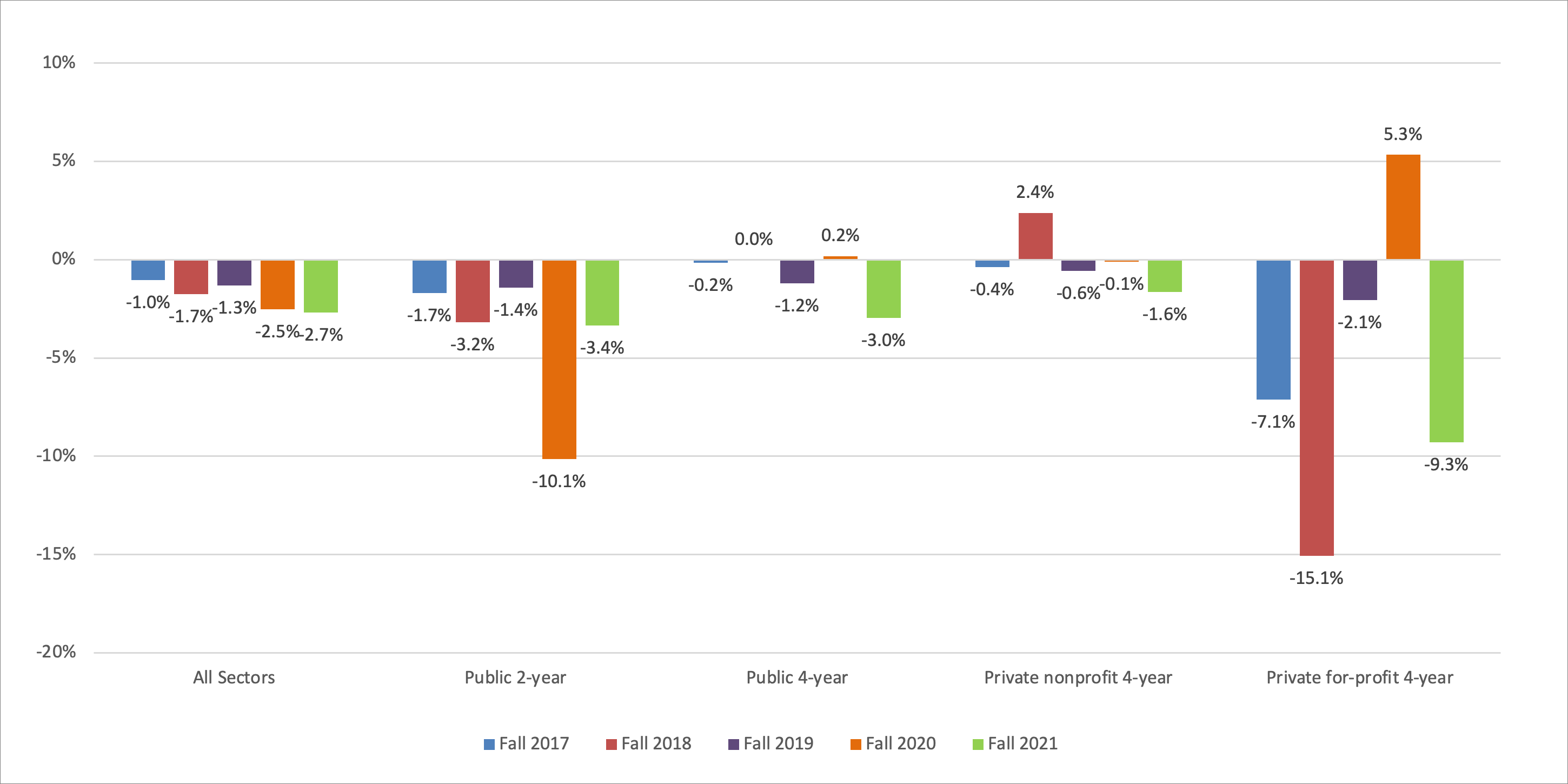- BLOG HOME
- »
- Signature Reports
- »
- The Consequences of Fewer People Going to College

The Consequences of Fewer People Going to College
A sharp and persistent decline in the number of Americans going to college — down by nearly a million undergraduate students since the start of the pandemic, according to newly released figures by the National Student Clearinghouse Research Center, and by nearly three million over the last decade — could negatively alter American society.
“Our final look at fall 2021 enrollment shows undergraduates continuing to sit out in droves as colleges navigate yet another year of COVID-19,” said Doug Shapiro, Executive Director of the National Student Clearinghouse Research Center, in a recent press release. “Without a dramatic re-engagement in their education, the potential loss to these students’ earnings and futures is significant, which will greatly impact the nation as a whole in years to come.”
The pandemic has had an impact. But, even before the pandemic, rates were down due to factors including declining birth rates and greater public skepticism of the need for higher education, according to an article in The Hechinger Report.
Low-Income Families Impacted Most
Among those most affected: children from low-income families, according to the Research Center, which reports “unprecedented” declines in the number of students from high-poverty and low-income high schools who immediately go on to higher education.
The situation becomes one of increasingly diminished returns with those in lower-income settings being impacted most which again reduces the odds that future generations will seek degrees.
“What does that mean for the modern American family? There are implications here that just go miles and miles and miles,” said Monty Sullivan, president of the Louisiana Community and Technical College System, in The Hechinger Report story.
Societal Effects
The sector most affected by declining enrollment rates is, of course, the education industry. The Hechinger Report cites data indicating that the education industry is a $632 billion industry with four million employees. But there are other, broader, impacts as well. The Hechinger Report points to data from Pew Research indicating that during the pandemic, “people without degrees were three times more likely to have lost their jobs.”
“We have a million adults in this country that have stepped off the path to the middle class. That’s the real headline,” Sullivan said. “This will be viewed as one of the great disruptions, not just because of the pandemic, but because of the economic, the social, and the health-related implications.”
Percent Change in Total Enrollment from Previous Year by Institutional Sector: 2017 to 2021

“What does that mean for the modern American family? There are implications here that just go miles and miles and miles.”
Monty Sullivan
President, Louisiana Community and Technical College System



